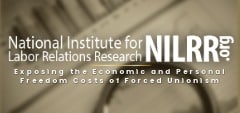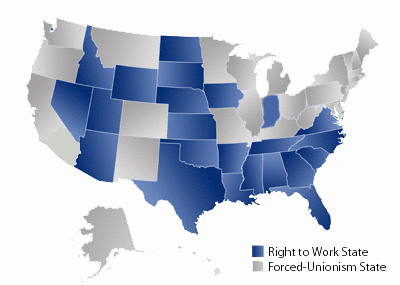Posts
State Budget Solutions’ third annual State Debt Report shows total … Just before Labor Day, the nonpartisan taxpayer watchdog group State Budget Solutions (SBS) issued its third annual report on state public debt, which calculates “the total amount of debt each…
‘Framing’ Prevents Needed Stimulus – Economic View – NYTimes.com Shiller on government jobs: who’s “framing” whom? – Public Sector In the 2012 elections, Big Labor’s #1 objective is ensuring that state and local government payrolls, of which 42% are under…
SEIU’s union organizers will not stop at almost nothing to gain their organizing ends. Perhaps most egregious of all is the way its “street demonstrations, ” supposedly spontaneous grass-roots affairs organized by the rank and file, are, in reality, carefully…
While the Democratic National Convention was not a temptation this year for the AFL-CIO, the union council has apparently teamed up with MoveOn to commandeer a get-out-the-vote effort. How many millions in forced dues will be funneled into this effort…
Rank and file Boilermakers deplore their bosses’ corruption, and the Labor Department’s protracted investigations. Documents obtained by The Star implicate union bosses in pension fund losses by every sort of method possible: nepotism, preference given to family members, excessive monetary…
From the Richmond Times-Dispatch: In America, one of the keys to success is the ability to compete on a level playing field. And states looking for a competitive advantage in this lagging economy should look to Virginia as an example.…





